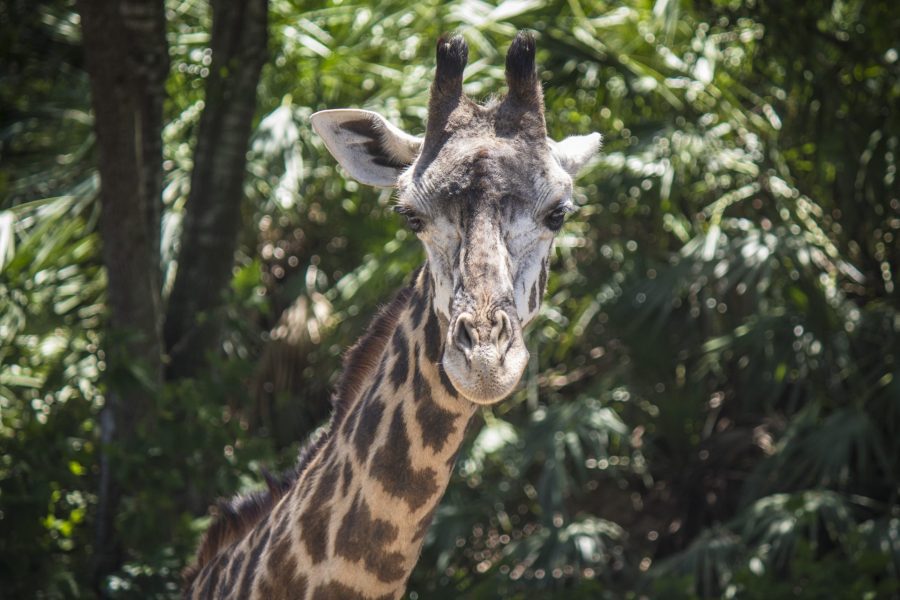

Johari the giraffe has been so missed. She will be remembered for her “calm, confident” personality.
We’d like to thank our Zoo community for their kind words and condolences after the unexpected death of our giraffe matriarch Johari in January. As one of our original five giraffes, she was the highlight of so many Zoo trips and memories.
Johari passed while recovering from a medical procedure performed to further investigate the cause of her sudden illness. Due to her sudden decline, our animal care team suspected she had a more serious underlying illness. As promised in our initial blogpost, we’d like to share what we learned from the necropsy report by the UF Pathology Service.
Based on the results of this report, we believe Johari died of complications from kidney disease.
Our animal care team knew Johari had chronic kidney disease and rumen (stomach) inflammation, two common diseases for older giraffes. At nearly 22 years old, she was considered geriatric for her species. Unfortunately, there is no specific cure for this kidney disease. We routinely monitored her bloodwork and provided hydration to treat her supportively.
“The specific type of kidney disease Johari had is somewhat uncommon, and the severity of it is not always well-reflected in bloodwork,” said one of our staff veterinarians, Dr. Kyle Donnelly.
Through the necropsy, we learned the full severity and scope of her kidney disease, which affected the glomerulus specifically. The glomerulus is the first part of the filtration structure in the kidney and is mostly in charge of making sure larger proteins are not leaked into the urine from the kidney. When too many important proteins are lost, this can affect blood pressure and lose specific proteins involved in the prevention of blood clots.
“Membranous glomerulonephritis typically carries a very poor prognosis so Johari beat the odds for living with it as long as she did,” Dr. Donnelly said.
It is possible that abnormal blood pressure made her less able to cope with sedatives and reversals, Dr. Donnelly said. Johari might have also developed a clot (stroke) while recovering from the procedure.
Dr. Donnelly suspects that this severe kidney disease likely caused her to feel ill and stop eating instead of the loose tooth as originally suspected.
It’s always hard to lose one of our animal residents, especially one with so much history for our staff and community like Johari. We try to learn more about our animal residents and their care from these sad circumstances. Based on what we’ve learned about Johari, we will continue to monitor our herd closely for any evidence of illness or severe chronic inflammation, which can be associated with development of this type of kidney disease.
